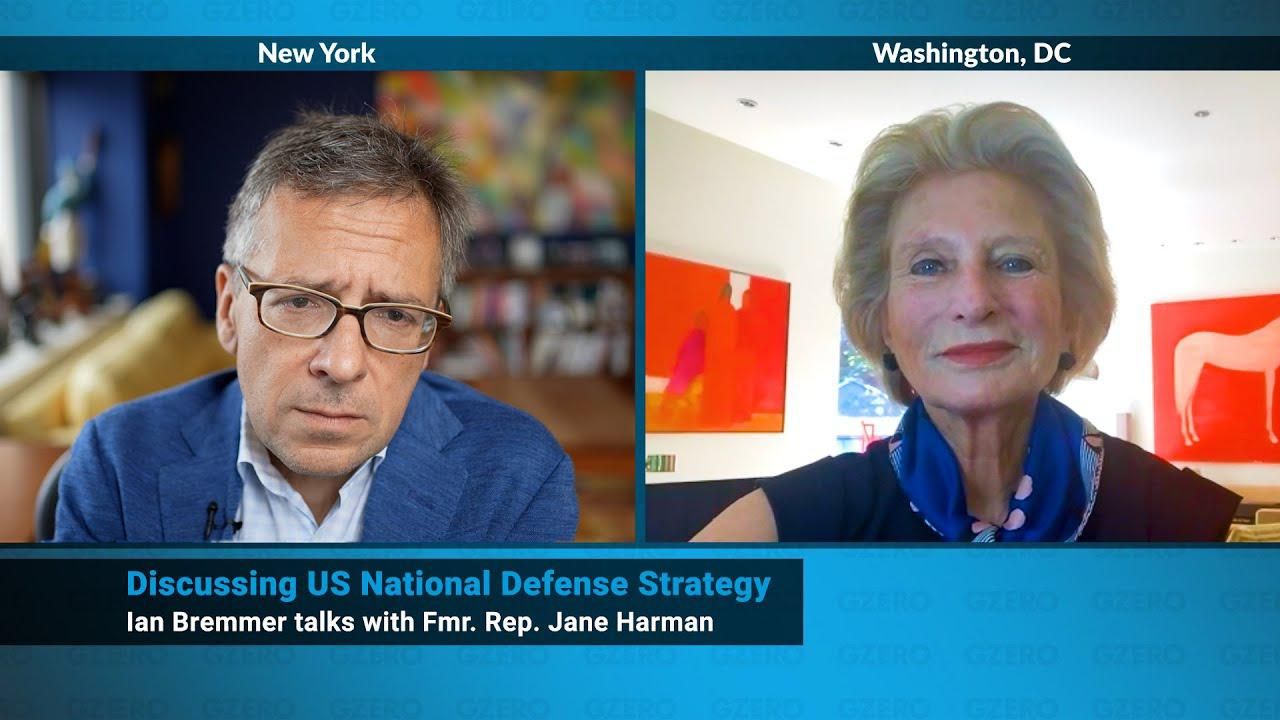GZERO World with Ian Bremmer
US national security depends on domestic progress

US National Security Depends on Domestic Progress | Former Congresswoman Jane Harman | GZERO World

Jane Harman, a nine-term member of Congress (D-CA) who served for decades on the major security committees in the House of Representatives, discusses the shortcomings of the US national security strategy for the last few decades, and assesses the Biden administration's plans to strengthen it. In an interview with Ian Bremmer, she discusses the priorities for addressing critical issues at home and abroad, from the COVID pandemic to the climate crisis and terrorism. But without a unified and functional Congress, Harman warns, the US is ineffective on matters of security. "Where is Congress? Congress can't get things done because of toxic partisanship, but the other reason it can't get anything done is members don't want to own the consequences. And that is chicken."
Harman, author of the new book, "Insanity Defense: Why Our Failure to Confront Hard National Security Problems Make Us Less Safe," discusses Joe Biden's presidency so far and gives him high marks on assembling an "A-team" for foreign policy. She adds, 'I'm just hopeful that because he has long term relationships and really a good compass for how to talk to members of Congress, he will be able to get somewhere."
It’s been just over 48 hours since US forces conducted a military operation in Caracas and seized Venezuelan strongman Nicolás Maduro, and the future governance of the country – and the US role in it – remains murky.
There have been several geopolitical shocks this year, yet none have stopped oil prices from plunging, showing how oil markets have become more risk tolerant.